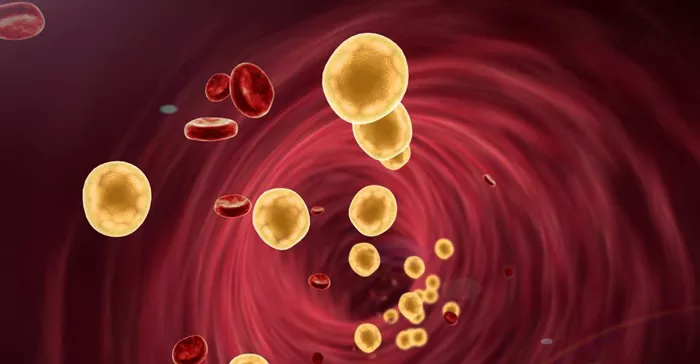High blood lipids, commonly referred to as hyperlipidemia, is a condition characterized by elevated levels of lipids in the blood. These lipids include cholesterol and triglycerides, which are essential for various bodily functions but can become harmful when present in excess. Cholesterol is divided into low-density lipoprotein (LDL) and high-density lipoprotein (HDL). LDL is often termed “bad” cholesterol because high levels can lead to plaque buildup in arteries, increasing the risk of heart disease and stroke. HDL, on the other hand, is considered “good” cholesterol as it helps remove LDL from the bloodstream.
Can people with High Blood Lipids Eat Eggs?
Gao Yuxia suggested that healthy people with normal blood lipids can eat one whole egg a day.
To supplement nutrition and increase milk, pregnant women can eat 2 to 3 eggs a day.
People with hypercholesterolemia can also eat eggs. Considering the risk factors, it is recommended to eat a boiled egg every other day, which is equivalent to eating half an egg a day. Regardless of the type of people, do not eat too much eggs, otherwise it will cause a waste of nutrients, and a large amount of protein will also increase the burden on the gastrointestinal tract and kidneys.
SEE ALSO: What Milk Should You Drink If You Have High Cholesterol
The Nutritional Profile of Eggs
Eggs are a nutritional powerhouse, providing high-quality protein, vitamins, and minerals. A single large egg contains about 186 milligrams of cholesterol, mostly found in the yolk. Eggs are also rich in essential nutrients such as vitamin B12, riboflavin, and selenium. Additionally, eggs provide choline, an important nutrient for brain health, and lutein and zeaxanthin, which are beneficial for eye health.
Historical Perspective on Eggs And Cholesterol
For many years, dietary guidelines recommended limiting egg consumption due to their cholesterol content. The concern was that consuming cholesterol-rich foods would directly increase blood cholesterol levels, thereby elevating the risk of cardiovascular disease (CVD). However, research over the past few decades has significantly altered this view.
Modern Research on Eggs and Blood Lipids
The Role of Dietary Cholesterol
Recent studies have shown that dietary cholesterol has a relatively modest impact on blood cholesterol levels for most people. The body’s cholesterol levels are influenced more by the types of fats consumed rather than cholesterol itself.
Saturated and trans fats have a more pronounced effect on increasing LDL cholesterol levels compared to dietary cholesterol.
Eggs and Cardiovascular Health
Numerous studies have investigated the relationship between egg consumption and cardiovascular health. A comprehensive review of multiple studies concluded that moderate egg consumption (up to one egg per day) does not significantly impact the risk of CVD in healthy individuals. In fact, some research suggests that eggs may have a neutral or even positive effect on heart health due to their nutrient density.
Impact on Different Populations
While eggs may be safe for the general population, certain groups might need to be more cautious. Individuals with genetic conditions like familial hypercholesterolemia, which causes very high cholesterol levels, may need to limit their dietary cholesterol intake more strictly. Additionally, people with diabetes may have a slightly increased risk of heart disease with higher egg consumption, though this is still a topic of ongoing research.
Balancing Egg Consumption with Other Dietary Factors
Importance of Overall Diet Quality
The impact of egg consumption on blood lipids should be considered within the context of an individual’s overall diet. A diet high in fruits, vegetables, whole grains, lean proteins, and healthy fats (such as those from fish, nuts, and olive oil) can help manage blood lipid levels effectively. Incorporating eggs into a balanced diet that limits saturated and trans fats can be beneficial.
Egg Preparation Methods
How eggs are prepared can also influence their health effects. Boiling or poaching eggs is preferable to frying them in butter or oil, which can add unhealthy fats. Combining eggs with nutrient-dense foods like vegetables can enhance their nutritional value.
Practical Recommendations for People with High Blood Lipids
Consulting Healthcare Providers
Individuals with high blood lipids should consult with their healthcare providers before making significant dietary changes.
A registered dietitian or a physician can provide personalized recommendations based on an individual’s health status, dietary habits, and lipid levels.
Moderation and Monitoring
Moderation is key. For those with high blood lipids, consuming eggs in moderation—such as a few times per week—can be part of a healthy diet. Monitoring blood lipid levels regularly can help track the impact of dietary changes and ensure that cholesterol levels remain within a healthy range.
Incorporating Other Heart-Healthy Foods ocuson the overall quality of the diet, preparation methods, and individual health factors. Consulting healthcare providers for personalized advice is crucial to ensure that dietary choices support overall cardiovascular health.
Conclusion
Can People with High Blood Lipids Eat Eggs? The answer is not a simple yes or no. For most people, including those with high blood lipids, moderate egg consumption can fit into a heart-healthy diet without significantly impacting cholesterol levels. The key is to focus on the overall quality of the diet, preparation methods, and individual health factors. Consulting healthcare providers for personalized advice is crucial to ensure that dietary choices support overall cardiovascular health.

